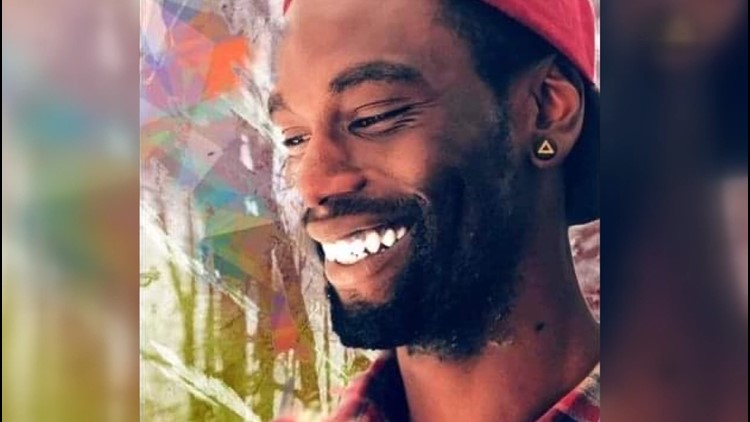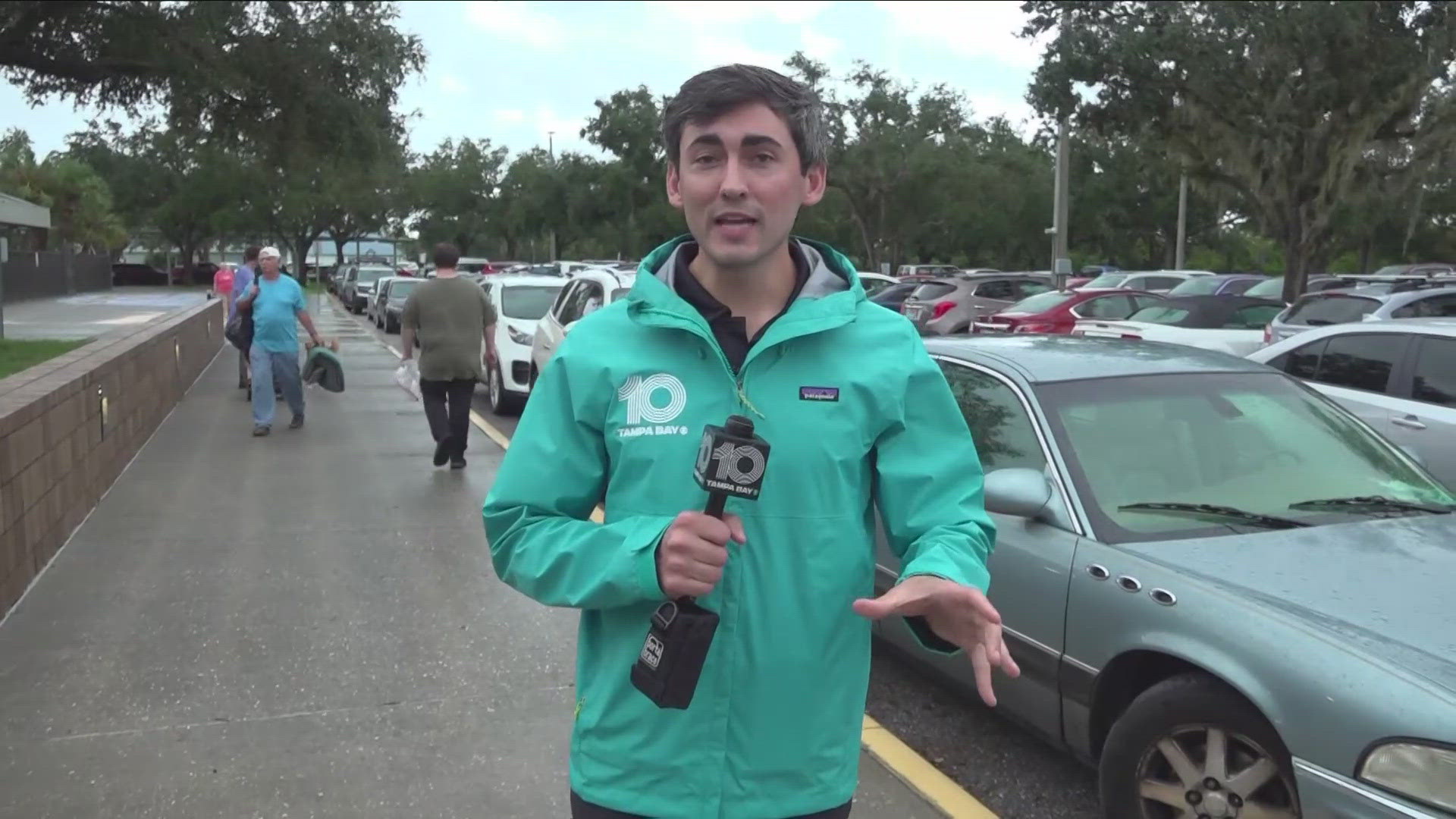MEMPHIS, Tenn. — After 16 days and 28 witnesses’ testimony, closing arguments concluded in the federal trial against three former Memphis Police Department officers charged in the death of Tyre Nichols.
Tadarrius Bean, Demetrius Haley and Justin Smith each face four counts of deprivation of rights under the color of law through excessive force and failure to intervene, and through deliberate indifference; conspiracy to witness tampering; and obstruction of justice through witness tampering.
Those charges stem from the Jan. 7, 2023 traffic stop of Tyre Nichols. Nichols died three days later at St. Francis Hospital.
Two other officers, Desmond Mills and Emmitt Martin III, accepted plea agreements in the case and testified against their former colleagues.
Judge Mark Norris read jury instructions to the pool to begin the day, reminding them of their duties: decide what the facts are, apply them to the law and determine whether the government has proven them beyond a reasonable doubt.
Prosecution's closing
Following Judge Norris charging jurors with their instructions, prosecutors began closing arguments by saying that these five officers beat Tyre Nichols to death and that they thought they had the power to beat a man, laugh about it and get it away with it.
“You know because you saw it over and over again,” prosecutor Kate Gilbert said.
Gilbert mentioned the “sickening thuds” caught on video and the officers own words when they thought no one was listening.
“As Tyre Nichols suffered, the officers laughed about what they did,” Gilbert said.
Jurors listened as Gilbert said these officers have tried to blame everyone but themselves, including EMTs, “for not guessing what they had done.”
“It was their responsibility,” Gilbert said. “Think about all the time these officers had to do the right thing.
“These officers chose violence. You could see the cover up unfold on video.”
Gilbert mentioned that instead of intervening, as they had been trained repeatedly and thoroughly to do, they encouraged each other to use force.
“They tell the smash bro with an anger problem who’s been seeing red to, ‘hit him,’” Gilbert said. “They lied. They knew it was wrong and wanted to cover it up.”
Gilbert said that Nichols is not there to tell jurors of the pain and terror that he must have felt that night.
“You know that those things hurt him,” Gilbert said. “You know that those things killed him.
“Tyre Nichols should still be alive. They chose their own comfort and convenience over Mr. Nichols life.”
Defense attorneys respond
Tadarrius Bean
The defense attorney for Bean, John Keith Perry, told jurors to disregard that they heard Nichols was running through a red light or that he drove two miles from the initial scene based on Martin’s testimony.
“Disregard this person was running because it was a cover-up,” Perry said, alluding to the fact that Bean was responding to radio traffic from the first scene.
Perry emphasized MPD policies and procedures on use of force, saying it was pain compliance by his client, “No more, no less.”
“They were doing their job,” Perry said.
Perry emphasized that other officers testified that they had never heard of Bean using any type of street tax, like other SCORPION unit officers.
Jurors then went through a PowerPoint presentation on witnesses testimony that had been given through the trial, with Perry emphasizing that the EMTs that were on scene did not give testimony in the case.
Perry said his witnesses showed that Bean followed policies and that the prosecutors could not impeach one of them.
“How was there a conspiracy?” Perry said. “Bean never agreed to anything.
“Look at the facts. Look at the video.”
Perry presented a slideshow, showing jurors a chart emphasizing that beyond a reasonable doubt is the highest level of the burden of proof that they must find.
“Don’t defund the police, refund Mr. Bean,” Perry said before the judge asked for a sidebar.
Demetrius Haley
Haley’s attorney Stephen Leffler spoke to jurors about two main things, presumption of innocence and beyond a reasonable doubt, stressing that prosecutors hadn’t done enough to prove his client guilty.
Leffler said that prosecutors evidence showed that the run tax was a former practice by older officers and that the government didn’t include it, “because it fit their narrative.”
“That’s another check written that can’t be cashed,” Leffler said.
Leffler admitted that Haley said, “beat that mean,” and delivered a kick to what he says is Nichols body.
“Nobody wants to have happen what happened in this case,” Leffler said.
Leffler alluded to Haley saying beat that man was a verbal command, one of the lower levels of the use of force continuum officers follow.
“Mr. Haley didn’t want to see him beaten, he was just doing his job that day,” Leffler said.
With Haley’s kick, Leffler said that was just his client going to the next level of the force continuum.
Leffler said that while Nichols may have not been a threat to officers, but in a frame frozen from the video showing Nichols with closed fists, he said that an officer could infer that he would resist.
MPD policies on unknown risk stops taught to officers, Leffler said, tactics vary depending on the stop for optimum safety.
“Remember, there is no such thing as a routine traffic stop,” Leffler said, quoting the policy.
“They don’t know what they’re going to come up on from his erratic behavior from a vehicle.”
Leffler placed blame on Martin for escalating the situation for saying “get off my gun,” at the initial traffic stop.
“Remember, 20-20 hindsight is not the window you look through,” Leffler said. “He had no reason not to believe that Mr. Nichols put his hand on Mr. Martin’s gun, that took the response to resistance continuum from verbal commands all the way to the top.”
Leffler said the officers stopped after handcuffing Nichols, which shows they weren’t punishing him because why would they have stopped.
The defense attorney said the report writing by a fellow officer was lackadaisical, which is why there is so much missing.
Leffler said Haley should be acquitted on all charges.
A video of just a timer was played by Leffler, who would interject occasionally, noting what happened after Nichols last being seen by his client at the first scene.
Judge Norris asked “if something was happening.”
Norris then added he did not say that they would be watching the passage of time before a sidebar was called.
Leffler was allowed to continue with the display and noted how Nichols appeared when Haley last saw him at the second scene.
“Force is not forbidden, the force just cannot be excessive,” Leffler said.
“Mr. Haley did not do anymore than what was listed on the use of force continuum.”
Leffler said that Haley can be seen hesitating before his kick, and noted he called for medical help saying that Nichols had been, “tazed, sprayed and everything.”
Leffler said that by the time of Haley’s kick, irreversible damage by Martin and that Haley did not have the means or opportunity to intervene because he was not at the second scene for most of the interaction.
Justin Smith
Martin Zummach, attorney for Justin Smith, said what the videos do not communicate is fear, exhaustion and deafness of making an arrest.
“Justin Smith did not take part in a crime,” Zummach said.
Zummach brought up Martin’s testimony, saying there was no way he could’ve seen strikes to the head by Bean and Smith.
Zummach also said Martin is the same officer who admitted to escalating the initial traffic stop by saying "let go of my gun."
The closing argument by Zummach brought up the witnesses called throughout the four-week trial.
Zummach brought up that most of those witnesses called spoke highly of Smith’s tenure as an officer.
Smith’s conversation with his lieutenant, Dewayne Smith, on learning of kicks from the scene was highlighted by Zummach as an example of him not trying to cover up what occurred.
“The people involved in a conspiracy to cover something up is Mills and Martin,” Zummach said, alluding to testimony from Mills on the removal of his body-worn camera.
“No wonder Desmond Mills got on the stand and started crying. He did nothing except take his body camera off,” Zummach said.
Zummach brought up that Smith talked to EMTs on scene about Nichols' oxygen on the scene.
The statement given to Federal Bureau of Investigation by Smith was brought up, with Zummach noting that Anthony Householder’s testimony on Smith’s statement changing was after he watched the video.
“The one way we would know what Justin Smith said is if Anthony Householder recorded it,” Zummach said. “My suggestion is just throw it out the window. It’s just unreliable.”
Zummach said determining if Justin Smith is guilty or not is one of the most important decisions the jurors will make in their life.
“Policing is ugly. It’s why none of us do it,” Zummach said. “Justin Smith lost a job that he loved; he found himself indicted by the federal government. Let his life start again. Find him not guilty.”
Prosecution's rebuttal
Prosecutors rebutted the closing arguments by reminding the jury that the government has the entire burden of proof and welcomes it.
Prosecutor Forrest Christian said that the defense's arguments of a running clock and defunding the police and Justin Smith’s attorney blaming everyone in the world are distractions.
“Don’t let those distractions make you forget the evidence in this case,” Christian said.
Christian even noted that two of the defendants admitted what they did to the FBI.
“Don’t let them cover-up what they did to Tyre Nichols,” Christian said. “Nobody tried to handcuff Nichols. They didn’t want to.”
Christian noted that Martin has pled guilty for his punches, but those wouldn’t be possible without Bean and Smith.
“They beat a man who couldn’t defend himself,” Christian said. “This trial could never be about Tyre Nichols' life."
Christian then focused on Haley, noting he made up kicking him in the arm because his arm was loose just like he lied to his girlfriend that he wasn’t at the scene.
“It was just a beating,” Christian said. “Hold them accountable for their choices. Hold them accountable for what they did when they thought no one was watching.”
Judge Norris told jurors that they would return tomorrow at 10:00 a.m. for the verdict form before they begin deliberations.



